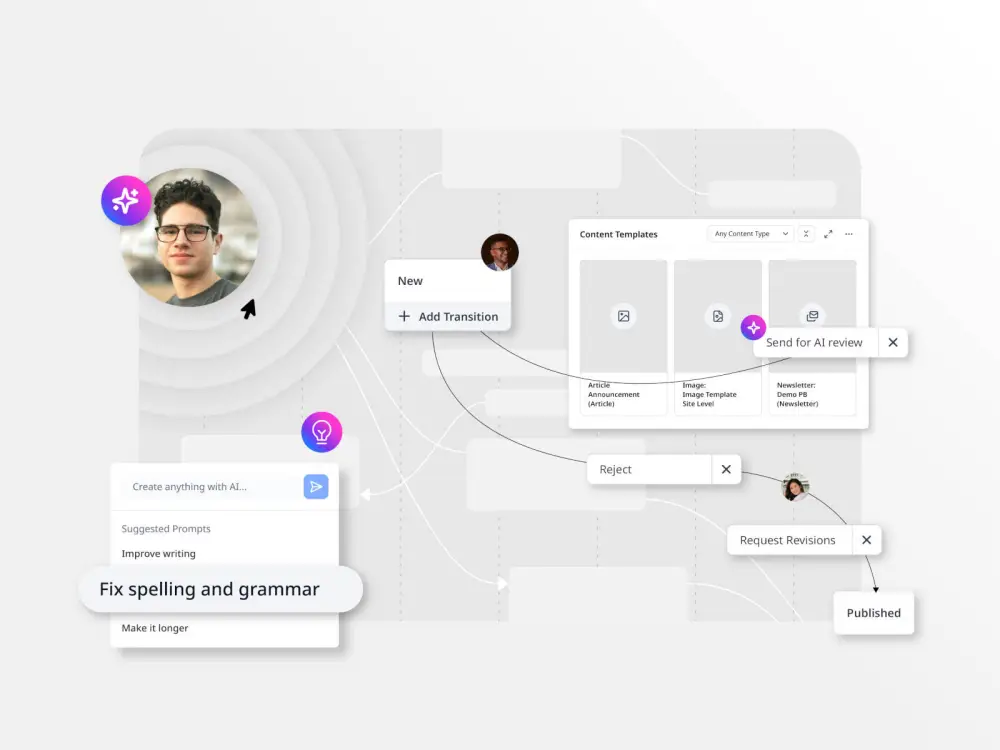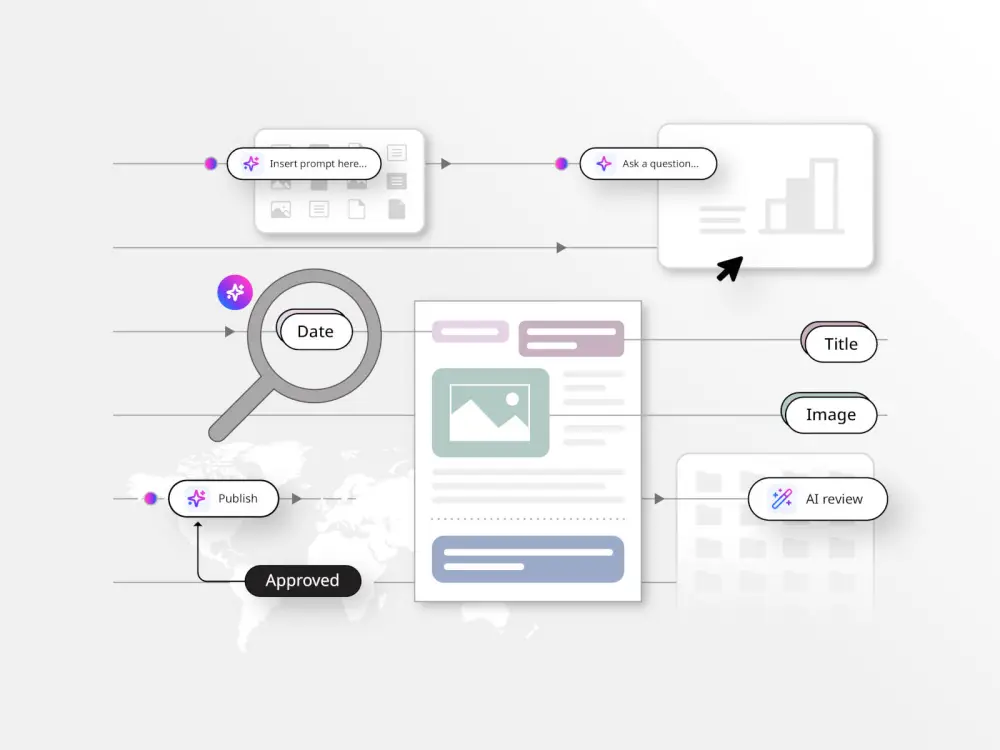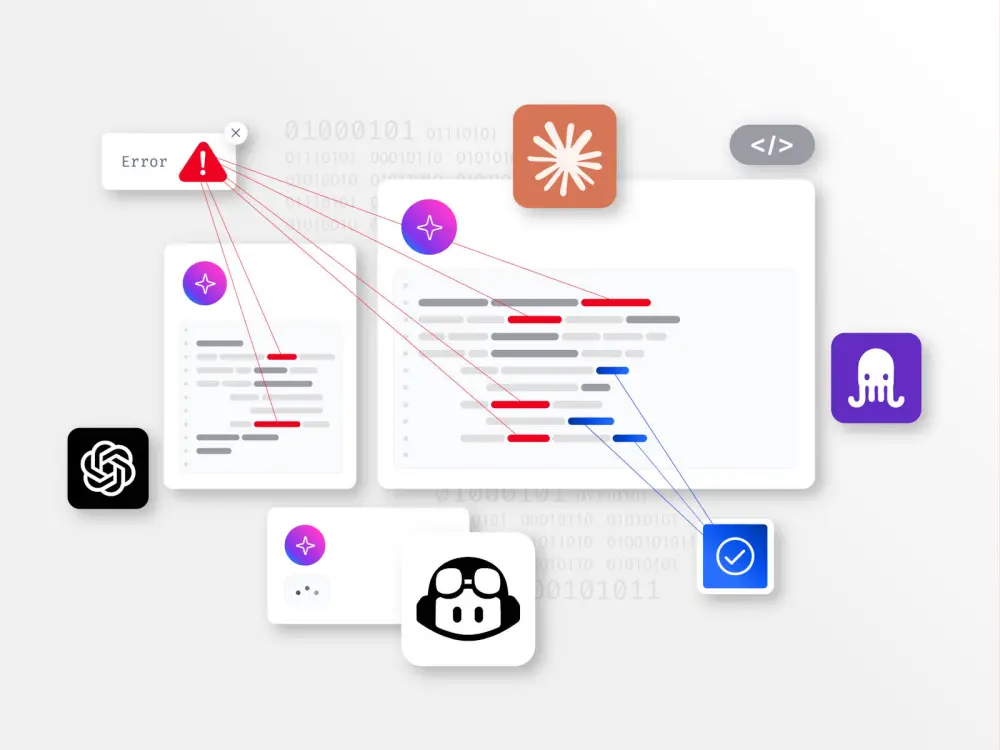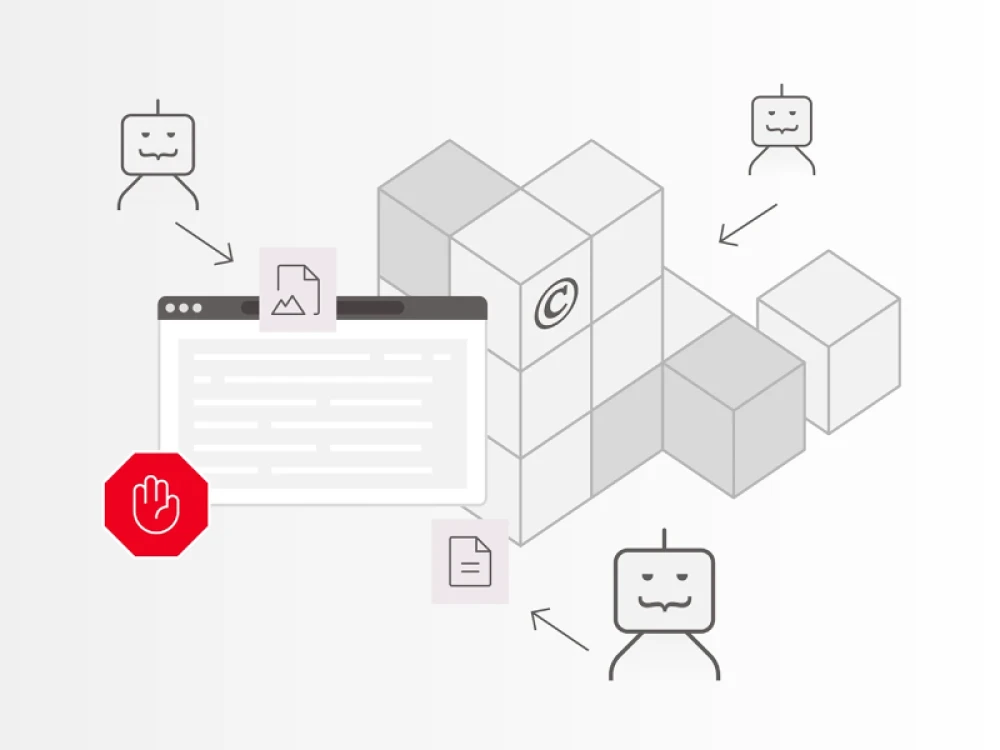While the use of artificial intelligence (AI) has been widely discussed for years (if not decades), it has seemed more like a promise that remained out of reach for most and only applicable to the lucky few who had the resources to adopt it within their businesses.
That’s all changed. In a relatively short time frame, AI was no longer a promise of the future but the reality of today. Conversational and generative AI applications like ChatGPT skyrocketed in recent months, with both businesses and individuals alike leveraging it to expedite various components of the content process, in particular. These tools support idea generation, keyword optimization, content summarization and so much more, ultimately helping to expedite content workflows and save time and resources that could be leveraged elsewhere.
But — are we going too fast? Are these tools ethical? Are they actually effective? How exactly are they changing content programs? Let’s dive in.
AI and your content program: What you need to know today
First, let’s cover how AI applications are being put to work within content programs.
One AI platform that’s particularly popular at the moment is ChatGPT. It’s a ‘natural language processing’ (NLP) tool that allows users to have human-like conversations. It can answer questions and assist users with tasks, such as composing emails, articles, or social media posts — and with specific prompts (the more specific, the better), it can complete these tasks in seconds.
Keep in mind, however, that ChatGPT has limitations. It doesn’t generate original thinking or ideas. It might not always provide the correct response or a well-written response. It doesn’t cite sources, and it only pulls from existing information up until 2021. With that, these aren’t tools that can replace content programs or the people who execute them, rather can help aid various steps within the process.
This is usually the first and most important question to answer, as everyone will have a different perspective and stance on AI — just like with other modern technologies. Generally, it’s important to have a code of conduct that emphasizes fairness, respect, consideration and care for others. Are you treating others well or using AI to harm or take advantage of them? Make sure you and all the necessary stakeholders in your organization are aligned on the ethical questions surrounding AI before you start using it in your content programs.
If most of your content is generated by AI, consider the potential risks to your company’s reputation. For example, if the content isn’t fact-checked or aligned with your company’s tone and voice, you might alienate your audience. Ensure that you use AI for the right purposes, not for everything.
Many AI platforms are trained on data lakes and question snippets to learn patterns and relationships, which are then used to create rules and make judgments based on a prompt. In other words, AI content isn’t based on original thinking. Keep in mind that the legal risks (copyright, patent, trademark infringement, etc.) associated with these tools are not yet fully understood, as they are relatively new and still in development.
Disclosing whether content was created by AI is an ongoing ethical question many companies are considering. Will your content still be authentic? Again, it largely depends on how you use these tools. Also, consider data privacy concerns for employers if employees are using AI tools for work without full training on how they work or their implications.
There are many online guides available that can help new users understand and use conversational and generative AI tools. Like any new technology, the more you use it and understand it, the more effective the tool becomes. If your technology partner offers AI-assisted capabilities or tools, they should provide training and support as well.
It depends on the task at hand, but for content programs specifically, most conversational AI tools can be used by content teams without developer support.
It’s more likely that AI applications will disrupt certain roles rather than replace them. While tools like ChatGPT can significantly speed up certain processes, the content itself still needs to be fact-checked, reviewed and approved by people. Content needs to be impactful, memorable and enticing, and that comes from the expertise of the individuals rather than solely relying on the tools they use.
When incorporating any new tool, including AI applications, into content programs, content teams need to update their processes and best practices and ensure everyone receives appropriate training. The review and approval process for all published content should be especially rigorous to ensure consistent and accurate delivery of content to your key audiences.
Benefits of leveraging AI for your content program
With so many outstanding questions surrounding AI, you might be wondering if it’s worth incorporating it into your content workflow. Here’s the upside of AI:
- It can help generate content ideas and topics: Writer’s block? AI can help with that. You can use different AI tools to help ideate content ideas and topics that would resonate with your specific audience.
- It can speed up various processes: These tools can scan existing, relevant information for you and then summarize the answer you’re looking for in seconds. This can especially help with the upfront research process when content teams are trying to understand their buyers (but again–remember to fact check what it provides you).
- It assists with writing: Various tools help with editing and proofreading and now writing itself. This can save a significant amount of time for teams, with content experts only having to edit and refine the piece to ensure it aligns with the company’s tone and voice in some cases.
- It supports all forms of content: AI isn’t only being leveraged for written content but for audio and visual content as well. It can help create and edit visuals to supplement blogs and articles, for example.
- It accommodates various channels: Content teams can leverage these tools to break down content across different channels. With the right prompt, you can feed the tool an article and have it break it down into various social posts for you.
There are various benefits of incorporating AI into your content programs. The best path forward is to stay informed and ensure you and your teams understand how it can be used within your company to enhance and elevate the content you create.

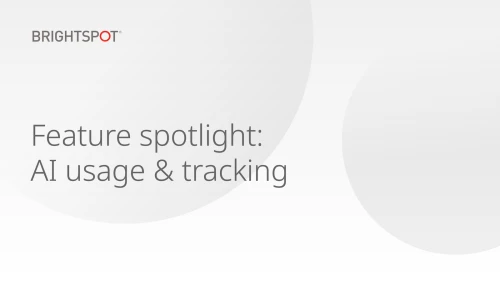



Questions about AI and your content program? Let’s connect.
It’s no question that, with the acceleration of time-saving tools like AI, content programs are poised for disruption. However, that disruption can ultimately be a great thing for the people running the programs and the audiences digesting their content if these tools are understood and properly deployed by those using them.
Moreover, remember that AI is new and still evolving. Take your time learning the implications of these tools and lean on your technology partners for support and insights.
Have questions or concerns about how AI is impacting content programs? Want to learn more about how Brightspot is approaching AI? Let’s connect! We’re more than happy to dive into the details with you.


